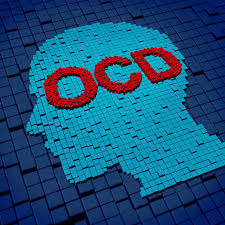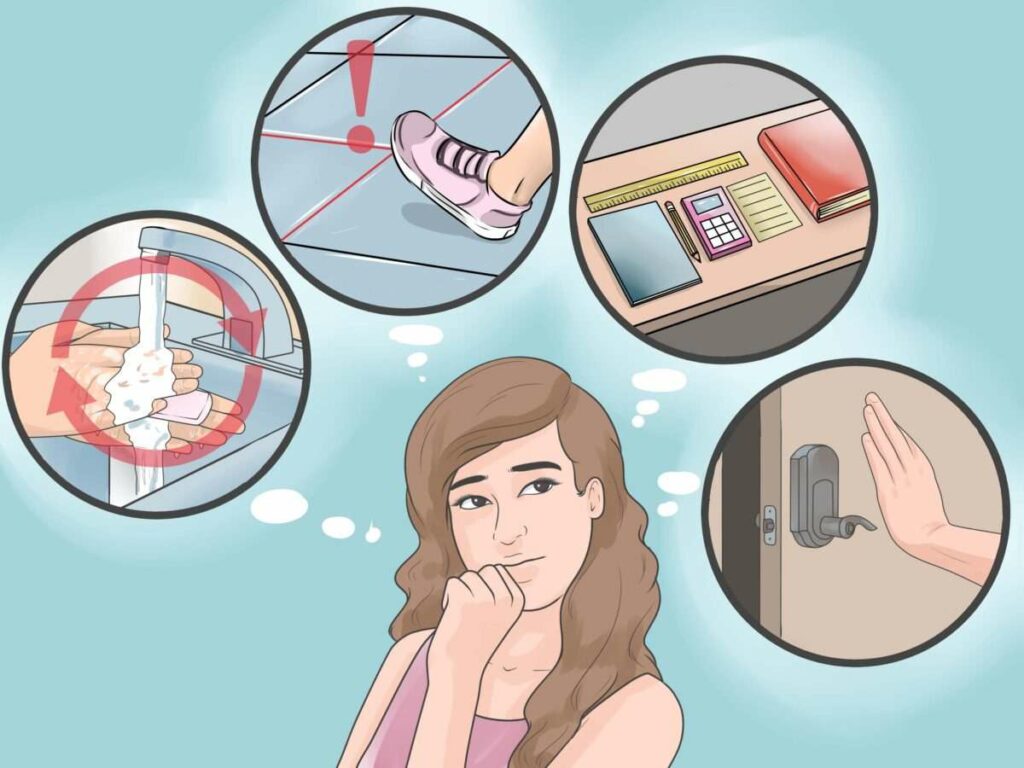Looking for help with pediatric OCD? You’re not alone. OCD affects millions of people of all ages and can be extremely difficult to deal with on your own. That’s why it’s important to seek out professional help if you or your child is struggling with OCD symptoms. In this blog post, we will discuss the basics of pediatric OCD and how a therapist can help you or your child manage the condition.
Contents
Is OCD Pediatric Treatable?

The first level of treatment for mild to moderate pediatric OCD is cognitive behavior therapy (CBT) which emphasizes exposure and response prevention. This type of therapy helps the child become aware of his/her thoughts, as well as replace negative thought patterns with more positive ones. In addition, family therapy can be helpful in providing emotional support and teaching coping skills to both the child and parents.
Medications are also a viable option for treating pediatric OCD. Common medications used can include antidepressants, such as selective serotonin reuptake inhibitors (SSRIs) or tricyclic antidepressants, which have been found to be effective in treating the symptoms of OCD. Other medications that are sometimes used to treat pediatric OCD include antipsychotics and anti-anxiety medications.
In more severe cases of pediatric OCD, a combination of medications and therapies can be helpful in providing the best results. In addition, alternative treatments such as yoga, meditation, and acupuncture may provide additional help for children suffering from OCD.
What is the Best Treatment For OCD in Children?
- The best treatment for OCD in children is Cognitive Behavioral Therapy (CBT).
- This form of therapy helps the child identify their irrational thoughts and behaviors associated with their OCD.
- Teaches them to reframe those thoughts in healthier ways. CBT also works on building problem-solving skills and teaching relaxation techniques like deep breathing and muscle relaxation.
- Exposure Response Prevention (ERP) is also commonly used to treat OCD in children.
- This approach gradually exposes the child to their fear and helps them become more comfortable with it. Medication may also be prescribed, but should not be a primary focus of treatment.
- Working with a trained mental health professional to tailor an individualized treatment plan is essential for helping kids manage their OCD.
It is also important to provide support and understanding to help children through the treatment process. With appropriate intervention, many children with OCD can lead happy and productive lives.
As always, it’s important to consult a qualified mental health professional for diagnosis and treatment of OCD in children. A professional will be able to evaluate your child’s symptoms and create an individualized treatment plan to help him or her manage their OCD. As with any mental health condition, early intervention can be very beneficial in helping a child with OCD get back on the path to wellness.
How To Find The Best Pediatric OCD Therapist?
Finding the right therapist for your child is an important decision and can be a difficult one. There are several things to consider when looking for a pediatric OCD therapist.
First, you should look for a mental health professional who specializes in treating children with OCD. It’s important that the therapist have experience working with children and adolescents with OCD. Additionally, you should look for a therapist who is willing to work collaboratively with you and your child to develop an effective treatment plan.
You can start your search by asking for referrals from other parents or talking to your child’s pediatrician. You might also contact mental health organizations in your area that specialize in providing mental health services to children and teens.
When you’ve narrowed down your list of potential therapists, it’s important that you interview each one thoroughly. Ask questions about the therapist’s experience with treating pediatric OCD, their approach to treatment, and whether or not they have any specialty certifications or training in this area. You should also ask whether they provide individual or group therapy, and how much time is allotted for each session.
The best pediatric OCD therapist will be someone who has experience working with children and teens with OCD, as well as a willingness to work collaboratively with you and your child’s team of mental health professionals. It’s also important to find someone you feel comfortable talking to and who can provide a safe and supportive environment for your child. When you’ve found the right therapist, your child will be on their way to overcoming OCD and living a more fulfilling life.
Do Kids With OCD Need Therapy?
In order to begin exposure and response prevention therapy.
Children with these disorders usually need cognitive therapy strategies to gain insight into their obsessions’ irrationality.
Additionally, they need to learn relaxation and problem-solving skills that can help them cope with the distress of their symptoms.
During therapy, children are encouraged to confront their fears in a safe and supportive environment while practicing tools. They can use it when they feel anxious or overwhelmed. This type of therapy is designed to gradually reduce the child’s fear response and teach them how to better manage their OCD symptoms. In many cases, parents and caregivers may need to be present during sessions to help the child put what they have learned into practice. Finally, medication may also be used in conjunction with therapy to help reduce the severity of a child’s OCD symptoms. Once treatment is complete, it is important that the child continues to practice their coping skills and strategies, as well as to seek support when necessary. By doing so, children can learn to effectively control their symptoms and lead healthier lives.
Can Children Recover From OCD?
To beat OCD, your child must face anxiety and not complete their compulsions or rituals. As soon as they see that the perceived danger does not come true, their anxiety will decrease on its own. It does take time and planning, but it is a very effective way to decrease OCD.
Cognitive Behavioral Therapy (CBT) is a type of psychotherapy that helps people with OCD to understand how their thoughts and feelings influence their behavior. CBT has been proven to be very effective in treating children with OCD, as it trains them to learn how to manage their anxious thoughts and behaviors without relying on compulsions or rituals. It also helps them to have more realistic expectations of themselves and the world around them.
Medication may be necessary in some cases, but should only be used when other OCD treatments have failed. Antidepressants such as Prozac or Zoloft are often prescribed for children with OCD, but they can come with side effects and should always be monitored by a doctor.
With the right help and support, children can recover from OCD. It may take time and patience, but it is possible to overcome the condition. If your child is struggling with OCD, it is important to seek professional help as soon as possible to ensure they get the treatment they need. With compassion and support, you can help your child to cope with their OCD and eventually overcome it.
With the right help, support and resources, children can recover from OCD. It is important to be patient and understanding as recovery takes time, but with the tools they learn in treatment and the support of those around them, they can look forward to a life free of the intrusive thoughts and behaviors that characterize OCD.
How Does A Child With OCD Behave?
It is common for obsessive or compulsive behaviors to cause anxiety or distress, such as having unwanted thoughts, impulses, or images that occur repeatedly. Repetition of something (for example, counting or repeating words repeatedly, silently or out loud). Ritualistic activities such as arranging and ordering items in a precise way or performing the same actions multiple times. Intense fear of dirt, contamination, germs, or a specific situation or object that leads to avoidance behavior.
Children with OCD may also display signs of depression, such as feeling hopeless or helpless feelings of guilt; low self-esteem; and irritability or restlessness. They may also have difficulty focusing, concentrating, and completing tasks. Some children will try to hide their obsessions and compulsions from family members, friends, or teachers out of embarrassment or fear.
It is important to seek professional help if a child displays signs of OCD. A mental health professional can assess the child’s symptoms, provide an accurate diagnosis, and create an individualized treatment plan that addresses the child’s needs. Treatment may include cognitive-behavioral therapy (CBT) or medication. With the right treatment, children with OCD can lead normal, productive lives.
It is important for parents to be proactive and advocate for their child if they notice signs of OCD. It is important to listen to the child’s concerns and validate their feelings and experiences. Parents should also provide support and create a safe, understanding environment in which the child can discuss their worries and anxieties. It is also important for parents to be aware of the signs and symptoms of OCD so that they can seek professional help if needed. Early intervention can make a major difference in a child’s life.
Conclusion
It may be concluded that pediatric OCD therapist can be an important ally in helping children who suffer from obsessive-compulsive disorder. They can help identify the root cause of a child’s OCD, create effective strategies to manage symptoms, and provide ongoing support throughout treatment. With the right help and support, children can learn how to manage OCD and progress towards a healthier, more fulfilling life.
Thank you for reading this article. We hope it has provided some helpful insight into the role of pediatric OCD therapists and the support they can provide families in need. If your child is suffering from obsessive-compulsive disorder, please don’t hesitate to seek help from a qualified professional. For more information about pediatric OCD therapists and finding the right therapist for your child, please visit us.
We wish you the best of luck in navigating this difficult journey with your child and finding the appropriate treatment. Good luck!This article has provided an overview of pediatric ocd therapists and the role they can play in helping children with OCD. Pediatric OCD therapists specialize in working with young people to identify the underlying causes of their disorder, create effective strategies for managing symptoms, and provide ongoing support throughout treatment. With the right help and support, children can overcome OCD-related struggles and progress towards a healthier, more fulfilling life. Thank you for your time. Good luck!
For more information and guidance, please contact OCDMantra. OCD is a mental health disorder characterized by obsessions and compulsions. If you have any queries regarding OCD treatment, ERP therapy experienced therapists at OCDMantra can help: Book a trial OCD therapy session


